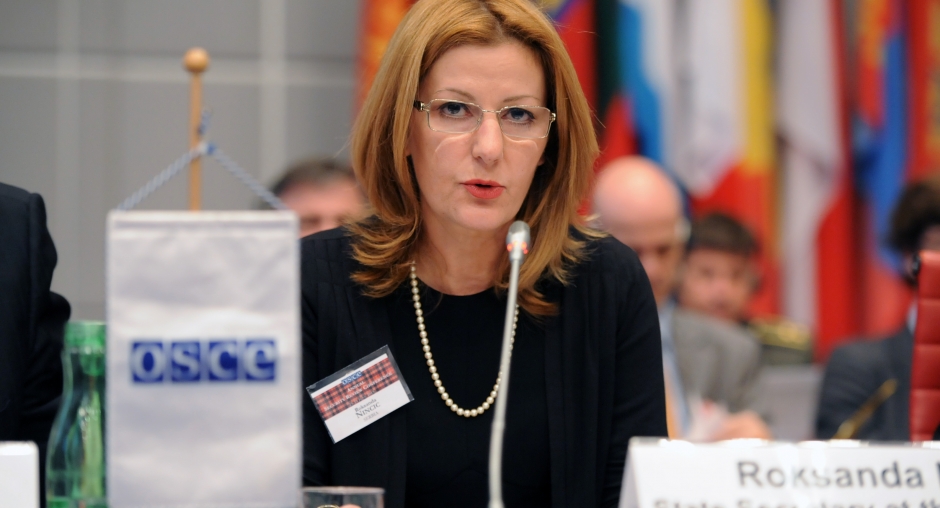



| Thursday, 25 June 2015. | |
| 2015 Annual Security Review Conference provides platform for debate on current security challenges | |
| + larger fontnormal font- Smaller font |
 Current security challenges in the OSCE area and how the Organization can use its comprehensive toolbox as well as co-operation with other international and regional organizations to address them were the focus of the 2015 Annual Security Review Conference, which took place in Vienna on 23-25 June. Current security challenges in the OSCE area and how the Organization can use its comprehensive toolbox as well as co-operation with other international and regional organizations to address them were the focus of the 2015 Annual Security Review Conference, which took place in Vienna on 23-25 June.Participants included high-level representatives of OSCE participating States, Partners for Co-operation and partnering organizations. Special attention was paid to the issue of ensuring security and stability in the OSCE region in light of the ongoing crisis in and around Ukraine. The conference also featured sessions on the OSCE's conflict cycle toolbox and on key transnational threats, in particular terrorism, cyber security challenges, and various forms of organized crime such as drug trafficking, smuggling and trafficking in human beings. Strengthening arms control and confidence- and security-building measures (CSBMs) as vital components of the OSCE's comprehensive and co-operative concept of security was also part of the agenda. Participants exchanged views on how to promote the OSCE's links with neighbouring regions, in particular through active co-ordination and co-operation with the Organization's Partners for Co-operation. Discussions also focused on the OSCE's role in European security and on the promotion and full implementation of the principles laid down in the Helsinki Final Act of 1975. Ambassador Roksanda Ninčić, State Secretary of Serbia's Ministry of Foreign Affairs, noted the importance of the Annual Security Review Conference as a platform for enhancing dialogue and for discussing pressing security concerns in an open and frank manner. Addressing participants on the first day of the conference, she said that this is a moment "to strengthen the Organization's capacity to prevent and respond to conflict and further develop the OSCE's capabilities with regard to early warning, early action, crisis management, conflict resolution, dialogue facilitation and mediation, as well as post-conflict rehabilitation and reconciliation." Ninčić also emphasized the role of the OSCE in responding to the crisis in and around Ukraine, stressing that the entire OSCE toolbox had been mobilized to address the crisis and to support critical steps needed to achieve a political solution. Looking back at the Organization's response since the initial deployment of the OSCE Special Monitoring Mission (SMM) to Ukraine in March 2014, OSCE Secretary General Lamberto Zannier said: "We have shown that we have the flexibility to respond nimbly to rapidly evolving conditions on the ground, and to adapt quickly to the requirements of new political agreements and taskings." Zannier stressed the importance of working together with other international organizations, highlighting in particular the OSCE's "positive and fruitful relationship with the United Nations." Photo by:OSCE/Micky Kroell |